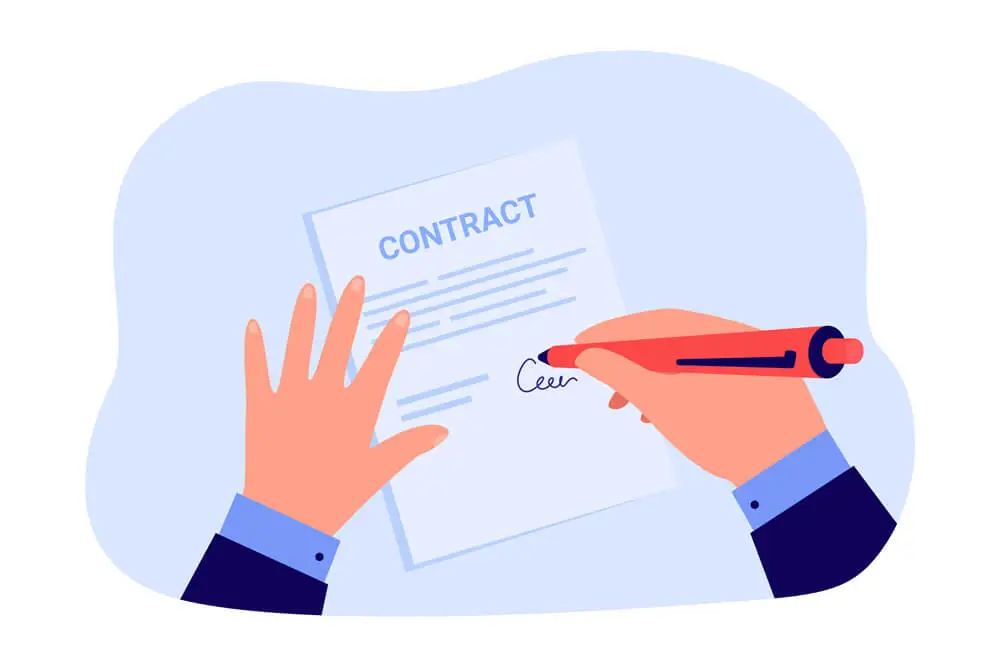
Partnership Agreements
Partnerships can become intricate based on the scale of business activities and the number of partners engaged. Establishing a partnership agreement becomes imperative to mitigate possible complexities or disputes within such a business arrangement. This legal document serves as the blueprint for business operations, outlining the dynamics and relationships among all partners.


Every partnership agreement is unique, but key elements such as ownership percentages, profit sharing, partnership duration, decision-making processes, partner authority, and exit procedures should be clearly defined.

A partnership agreement is crucial for ensuring clarity and formalizing the partnership arrangement. Partnership agreements ensure all parties are fully aware of their obligations and duties.

A partnership agreement is a legally binding document. It is a contract between the partners of a partnership that outlines the terms, conditions, and rules governing their business relationship.
Why work with VB and Partners?
Embarking on a business venture, especially in a foreign land, can appear overwhelming. At VB & Partners, we understand this challenge and our experts are ready to assist with your needs. Our comprehensive range of services covers every step, from initial business feasibility assessments to complete incorporation and the start of your business operations.
Navigating local laws and regulations is a paramount concern for foreign enterprises. Our tailored solutions alleviate this complexity, ensuring unwavering adherence to legal mandates. Backed by a team well-versed in the intricacies of the Thai market and regulations, ensuring the smooth operation of your business.
VB & Partners takes pride in its assembly of seasoned experts. Ranging from Incorporation, Accounting & Secretary Services to Immigration and Real Estate, VB & Partners stands as your premier destination for all your legal and accounting needs.
What does this package include
Initial Consultation: Conduct an initial consultation with the parties involved, including representatives from all the partners, to gather essential information and understand the specific details of the agreement.
Drafting of Partnership Agreement: Prepare the draft comprehensive Partnership Agreement. Including any amendments or revisions.
Finalization: Prepare the final version of the Partnership Agreement, ensuring accuracy, completeness, and compliance with all applicable laws and regulations.
- Answering any questions relating to the Partnership Agreement.
Outline each parties obligations and duties
Excluding official fees and transportation fees
The fee for the advisory call will be deducted from our service fee should you choose to engage with our services
Price: + 7% VAT
What you must know before applying
Book a Call with our expert
Up to an hour consultation on the process of setting up a company in Thailand.
We will provide you with information on key areas such as; company structure, taxes, accounting and other general aspects of opening a company in Thailand. We will also answer any other legal questions you may have to provide you with a clear overview.
If some extra research is necessary to answer your questions, our experts will check and revert to you with complementary elements by email.
This consultation is provided by legal experts in English or in French.

Frequently Asked Questions
A partnership agreement is a legally binding document. It is a contract between the partners of a partnership that outlines the terms, conditions, and rules governing their business relationship. When all partners sign the agreement, they are legally obligated to adhere to its terms and provisions.
A partnership agreement typically covers important aspects of the partnership, such as capital contributions, profit and loss sharing, decision-making processes, responsibilities, dispute resolution mechanisms, and more. If any partner fails to fulfill their obligations or breaches the terms of the agreement, they can be held legally accountable for their actions or non-compliance.
However, the enforceability of a partnership agreement may also be subject to applicable laws and regulations in the jurisdiction where the partnership operates. It's advisable for partners to seek legal counsel when drafting and executing a partnership agreement to ensure it complies with local laws and is legally binding in the intended jurisdiction.
A partnership agreement offers several benefits for partners in a business partnership. These advantages include:
Clarity and Structure: A partnership agreement provides a structured framework for the partnership, clarifying roles, responsibilities, and expectations for all partners.
Conflict Resolution: The agreement includes provisions for resolving disputes among partners, which can help prevent conflicts from escalating.
Customization: Partners can tailor the agreement to their specific needs and goals, ensuring it reflects the unique nature of their business.
Protection of Interests: It safeguards the interests of each partner by defining ownership percentages, profit-sharing arrangements, and decision-making processes.
Asset Protection: The agreement may include provisions to protect the partnership's assets and outline procedures for dealing with partner withdrawals or departures.
Decision-Making: It outlines how decisions will be made within the partnership, which can enhance efficiency and prevent disagreements.
Exit Strategies: The agreement includes procedures for the sale, transfer, or withdrawal of a partner's interest, helping partners plan for the future.
Legal Compliance: It ensures the partnership operates in compliance with relevant laws and regulations.
Financial Transparency: The agreement often requires partners to provide financial reports, promoting transparency and accountability.
Continuity: In the event of a partner's death or departure, the agreement can outline measures for the partnership's continuity.
Confidentiality: It may include clauses to protect sensitive business information and trade secrets.
Non-Compete Provisions: Partners can agree to non-compete clauses to prevent competition among partners during and after the partnership.
Dispute Avoidance: By clarifying expectations and roles, the agreement can help avoid misunderstandings and disputes.
Legal Recognition: A partnership agreement is a legally binding document, offering legal protection to all parties involved.
Investor Confidence: Having a well-structured partnership agreement can inspire confidence in potential investors or lenders.
Asset Allocation: It addresses the distribution of partnership assets and liabilities in the event of dissolution or sale.
Overall, a well-drafted partnership agreement serves as a vital tool for partners to establish and maintain a successful and harmonious business partnership while minimizing potential risks and uncertainties.
In many jurisdictions, a partnership agreement is not legally required for the formation of a partnership. Partnerships can be created informally through verbal agreements or implied understandings between individuals or entities engaging in business together. Such partnerships are typically known as "general partnerships."
However, while not legally mandated, it is highly advisable to create a partnership agreement.
Yes, a partnership agreement is a legally binding document. It is a contract between the partners of a partnership that outlines the terms, conditions, and rules governing their business relationship. When all partners sign the agreement, they are legally obligated to adhere to its terms and provisions.
A partnership agreement typically covers important aspects of the partnership, such as capital contributions, profit and loss sharing, decision-making processes, responsibilities, dispute resolution mechanisms, and more. If any partner fails to fulfill their obligations or breaches the terms of the agreement, they can be held legally accountable for their actions or non-compliance.
However, the enforceability of a partnership agreement may also be subject to applicable laws and regulations in the jurisdiction where the partnership operates. It's advisable for partners to seek legal counsel when drafting and executing a partnership agreement to ensure it complies with local laws and is legally binding in the intended jurisdiction.




